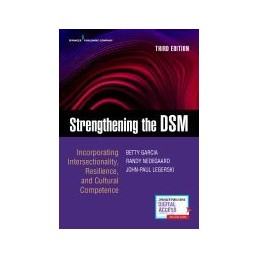- Reduced price

Order to parcel locker

easy pay


 Delivery policy
Delivery policy
Choose Paczkomat Inpost, Orlen Paczka, DHL, DPD or Poczta Polska. Click for more details
 Security policy
Security policy
Pay with a quick bank transfer, payment card or cash on delivery. Click for more details
 Return policy
Return policy
If you are a consumer, you can return the goods within 14 days. Click for more details
By demonstrating how to practically integrate diversity and intersectionality into the diagnostic process rather than limiting assessment to a purely problem-focused diagnostic label, this successful textbook strengthens the DSM for social workers and other mental health practitioners by promoting the inclusion of intersectionality, resiliency, culture, spirituality, and community into practice. It includes multiple case studies featuring complex, real life scenarios that offer a greater depth of learning by demonstrating how a strength-based assessment of the whole person can lead to more effective and successful treatment. Discussion questions promote critical thinking, key points in each chapter highlight and reinforce important concepts, and abundant web resources encourage additional study. The book also includes a robust instructor package. Purchase of the print edition includes access to digital version format.
New to the Third Edition::Data sheet
